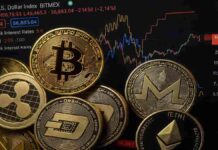# GLOBAL NEWS
In the past 12 hours, significant developments have unfolded across the globe, impacting economic, financial, and geopolitical landscapes. This article summarizes key events from the United States, Europe, and Asia, highlighting the implications of these occurrences for investors and policymakers alike.
## US
The U.S. has been grappling with a series of political and economic events that have stirred both investor sentiment and public discourse. The assassination of political activist Charlie Kirk in Utah has raised alarms about political violence in America. Kirk, a prominent supporter of President Donald Trump, was shot during a public event, prompting a manhunt for the assailant. This incident has been condemned as a “heinous assassination” by Trump, reflecting the escalating tensions within American politics.
In economic news, the Federal Reserve is facing mounting pressure to cut interest rates, with the latest jobs report revealing that the U.S. economy added 911,000 fewer jobs than previously thought. This revision has prompted discussions about the overall health of the labor market, with some analysts predicting that the Fed may need to lower rates in response to weakening economic indicators. Additionally, the producer price index showed an unexpected decline of 0.1% in August, further fueling expectations of a rate cut.
On the corporate front, Opendoor’s stock surged 30% following the announcement of a new CEO, while Oracle’s impressive earnings report, driven by strong cloud growth projections, has positioned it as a significant player in the tech sector. The stock of Oracle rose 36%, marking its best day since 1992, as investors reacted positively to the company’s robust performance amid a competitive landscape.
## EUROPE
In Europe, geopolitical tensions have escalated as Poland shot down Russian drones that violated its airspace. This incident marks a critical moment for NATO, as it represents the first direct engagement with Russian assets since the onset of the Ukraine conflict. European leaders have condemned the incursion, viewing it as a test of NATO’s resolve.
Economically, the Eurozone is facing challenges with inflation and sluggish growth. Recent reports indicate that the Eurozone’s GDP grew by just 0.1% in the second quarter, a stark contrast to earlier projections. The European Central Bank is expected to maintain its current interest rates despite these economic headwinds. Meanwhile, discussions surrounding the EU’s trade agreements and tariffs are intensifying, particularly in light of President Trump’s requests for the EU to impose tariffs on India and China over their dealings with Russia.
Amidst these challenges, the automotive sector is undergoing significant shifts, with Europe’s legacy car brands launching new models to counter competition from Chinese manufacturers. The ongoing debate about the ban on new gasoline cars by 2035 is also back in the spotlight, raising concerns about the future of the automotive industry in the region.
## ASIA
Asia is witnessing a wave of corporate and economic developments, particularly in the tech and retail sectors. Chipotle has announced plans to expand its footprint in Asia, specifically targeting South Korea and Singapore, as part of its growth strategy. This move aligns with a broader trend of American brands seeking to penetrate Asian markets.
In South Korea, the government has taken steps to repatriate workers detained during an immigration raid at a Hyundai plant in Georgia. This incident has raised questions about the availability of work visas for Asian companies operating in the U.S., potentially impacting future investments.
China’s economic landscape is also evolving, with reports indicating a decline in consumer prices and ongoing deflation concerns. The Chinese government is under pressure to implement stimulus measures to support its economy, which has been showing signs of weakness amid global trade tensions.
Furthermore, Alibaba has taken a leading role in a funding spree among Chinese tech firms, investing heavily in AI and cloud computing. This move underscores the competitive landscape in the tech sector, as companies vie for dominance in the rapidly evolving market.
As the geopolitical landscape shifts, the emergence of an “anti-Western alliance” involving China, Russia, and North Korea has raised concerns among analysts about a new axis of power that could challenge Western influence globally.
In conclusion, the recent developments across the U.S., Europe, and Asia highlight the interconnected nature of global markets and politics. As economic indicators fluctuate and geopolitical tensions rise, stakeholders in both the public and private sectors must navigate these challenges with caution and foresight.





